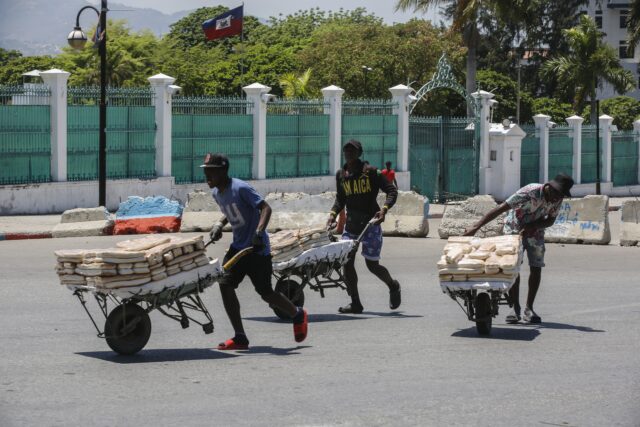PORT-AU-PRINCE: Haiti Prime Minister Ariel Henry has resigned after conferring with regional leaders on Monday. Reports indicate he will be replaced by an empowered transitional council that will appoint an interim prime minister and pave the way for elections. Henry is presently in Puerto Rico and has been unable to return home amid fears he could be targeted by armed gangs that want him gone. There is also concern that violence in the streets could increase given the links between the gangs and political groups.
More than 53,000 people have fled Haiti’s capital in less than three weeks, the vast majority to escape unrelenting gang violence, according to a United Nations report released Tuesday. More than 60% are headed to Haiti’s rural southern region, which worries UN officials.
“Our humanitarian colleagues emphasized that these departments do not have sufficient infrastructure, and host communities do not have sufficient resources, to cope with the large number of people fleeing Port-au-Prince,” said UN spokesman Stephane Dujarric.
The southern region already hosts more than 116,000 Haitians who previously left Port-au-Prince, according to the report by the UN’s International Organization for Migration.
The exodus from the capital of some 3 million people began shortly after powerful gangs launched a series of attacks on government institutions at the end of February. Gunmen have burned police stations, opened fire on the main international airport that remains closed and stormed Haiti’s two biggest prisons, releasing more than 4,000 inmates.
More than 1,500 people have been reported killed up to March 22, and another 17,000 have been left homeless, according to the UN.
Among the rare travelers trying to head north instead of south from the capital were Marjorie Michelle-Jean, a 42-year-old street vendor, and her two children, ages 4 and 7.
“I want to see them alive,” she said, explaining that stray bullets keep hitting the tin roof of their home. Last week, they tried twice to travel to her hometown of Mirebalais in central Haiti but were forced to turn back because of roadblocks. “I will definitely try again,” she said. “It’s absolutely not safe in Port-au-Prince.”
Of the 53,125 people who fled Port-au-Prince from March 8-27, nearly 70% already had been forced to abandon their homes and were living with relatives or in crowded and unsanitary makeshift shelters across the capital, the UN found.
More than 90% of Haitians leaving the capital have been crowding into buses, risking travel through gang-controlled territory where gang rapes have been reported and gunmen have been known to open fire on public transport.
















